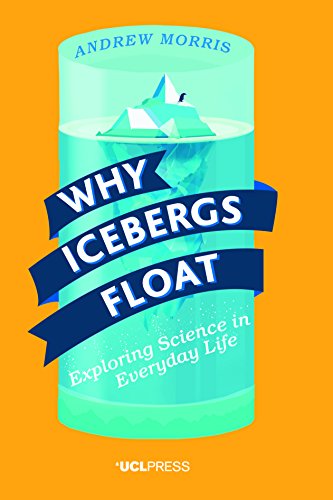
Why Icebergs Float: Exploring Science in Everyday Life
by Andrew Morris
Publisher: UCL Press 2016
ISBN/ASIN: 1911307037
ISBN-13: 9781911307037
Number of pages: 222
Description:
Andrew Morris takes examples from the science we see every day and uses them as entry points to explain a number of fundamental scientific concepts in ways that anyone can grasp. This book encourages us to reflect on our own relationship with science and serves as an important reminder of why we should continue learning as adults.
Download or read it online for free here:
Download link
(13MB, PDF)
Similar books
 The Evolution of Modern Science
The Evolution of Modern Scienceby Thomas L. Isenhour - Bookboon
The Evolution of Modern Science outlines the story of science from Aristotle to the present. The goals of this book are to show the evolution of modern science in historical and political context and to demystify science.
(9576 views)
 Planning and Managing Scientific Research
Planning and Managing Scientific Researchby Brian Kennett - ANU Press
This work is based on extensive research experiences and is designed to provide an introduction to planning and managing scientific research for the beginning researcher. The aim is to build an understanding of the nature of scientific research...
(8959 views)
 How Modern Science Came into the World
How Modern Science Came into the Worldby H. Floris Cohen - Amsterdam University Press
A vision of the Scientific Revolution as made up of six distinct yet narrowly interconnected, revolutionary transformations, each of some twenty-five to thirty years' duration. The author explains how modern science could come about in Europe ...
(7732 views)
 On the Dual Uses of Science and Ethics
On the Dual Uses of Science and Ethicsby Brian Rappert, Michael J. Selgelid (eds) - ANU Press
Claims about the transformations enabled by modern science and medicine have been accompanied by an unsettling question in recent years: might the knowledge being produced undermine -- rather than further -- human and animal well being?
(6549 views)